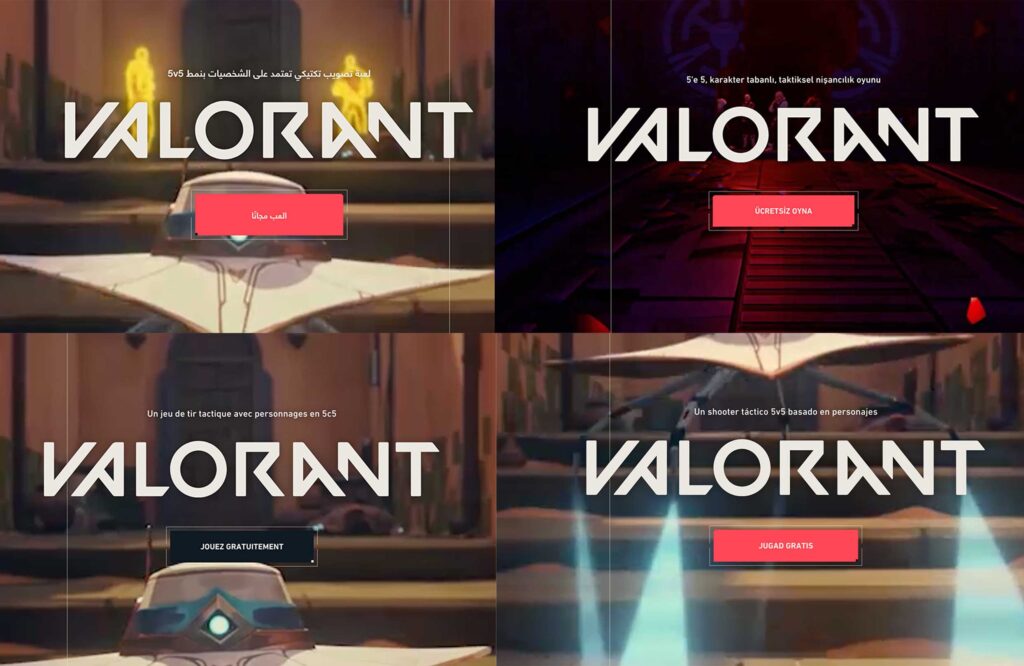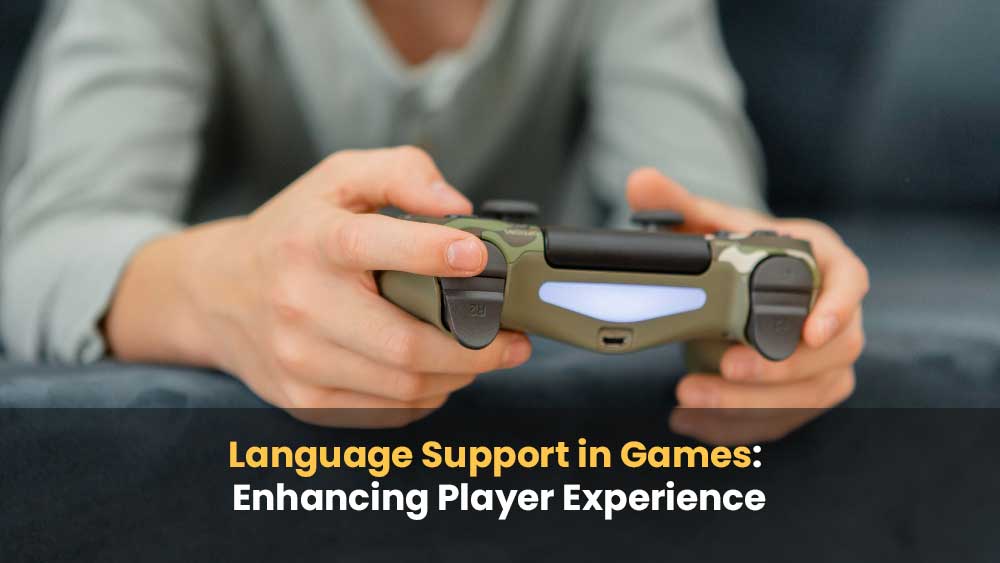Video games have become a ubiquitous form of entertainment worldwide, with the global gaming industry generating billions of dollars in revenue each year. As the gaming industry expands, it becomes increasingly important for game developers to reach a broader audience by translating their games into multiple languages. This is where game translators come in, playing an essential role in the localisation of video games.
Game translators must be highly skilled in both the source and target languages, as well as have an in-depth understanding of the gaming industry and its culture. They must also be creative and able to adapt their translations to the target audience, taking into account cultural nuances, idioms, and slang terms. Localisation and translation in gaming are crucial for game developers to make their games appealing to a broader audience. The future of game translation and localisation is bright as the gaming industry continues to grow and game developers seek to reach new markets worldwide. With the right skills and qualifications, game translators can enjoy a rewarding career in this exciting and dynamic field.
Table of Contents
Translation and Localisation in Gaming

What are the definitions and differences of translation and localisation in gaming?
While Translation and localisation are essential processes in the gaming industry, they come with distinct differences. Translation involves converting game text and dialogue from one language to another while maintaining the original meaning and context of the content. On the other hand, localisation involves adapting a game to a specific region or country by translating the in-game text, dialogue, and other content, as well as, modifying game content to ensure it is culturally appropriate for the target market.
Game developers must understand these differences and invest in high-quality translation and localisation services to reach their desired audiences successfully. Game translators must be highly skilled in both the source and target languages, as well as have an in-depth understanding of the gaming industry and its culture.
What are the challenges and best practices for gaming translation and localisation?
One of the primary challenges game translators and localisers face is linguistic and cultural differences. Game developers must ensure the translated content is culturally appropriate and resonate with the target audience. Technical limitations and tight deadlines also present challenges, making adopting best practices to ensure high-quality end products essential.
One of the best practices in gaming translation and localisation is to use native speakers of the target language. Native speakers better understand the nuances of the language and can ensure that the translated content is accurate and error-free. Another best practice is to conduct cultural research to ensure that the localised version of the game is culturally appropriate and acceptable for the target market. This includes considering cultural differences in humour, idioms, and other social references.
Testing the localised version of the game is also an essential best practice for ensuring the quality of the game.
Language Support for Video Games
What are the types of language support for video games?
Language support in video games is crucial to ensure that the game reaches a broader audience. Here are some types of language support that are commonly used in video games:
- Subtitles: These are textual representations of the dialogue or narrative in the game. They are helpful for players who have hearing difficulties or prefer to read the text rather than listen to it.
- Dubbing: The voice-over for a game is replaced with a recording in another language. This is particularly useful for games that rely heavily on voice acting.
- UI Translation: This involves translating the user interface of a game, including menus, buttons, and other on-screen text.
- In-game text translation: This refers to translating any text that appears within the game, such as item descriptions, quest objectives, and character dialogue.
What are some best practices for language support in video games?
To ensure high-quality language support in video games, game developers need to adopt some best practices, including:
- Choosing the right translation agency or team with expertise in gaming translation.
- Conducting cultural research to ensure that the game’s localised version is culturally appropriate and acceptable for the target market.
- Using native speakers of the target language for translation and localisation.
- Implementing a comprehensive quality assurance process ensures the localised game is free from errors and inconsistencies.
- Providing players with the option to choose their preferred language and making it easy to switch between languages.
- Making it easy for players to access different language support.
- What are some examples of successfully translated and localised video games?
When a game is translated and localised successfully, it can resonate with gamers worldwide and become a cultural phenomenon. Here are some examples of popular video games that have been successfully translated and localised, reaching huge success: “The Witcher 3: Wild Hunt,” “Final Fantasy VII Remake,” and “Assassin’s Creed: Valhalla.” These games have received praise for their high-quality localisation, accurate translations, and attention to cultural details.
Transcreation and Linguistic Modification for Gaming
What Defines Transcreation in Gaming
Transcreation is a process of adapting the content of a game to ensure that it resonates with the players. This process involves more than just translation; it requires recreating the original content in a culturally appropriate way for the target market. Transcreation is essential in gaming because it can help players feel more connected to the game’s narrative and characters, leading to a more immersive and enjoyable gaming experience.
Linguistic modification, however, involves adapting the language used in the game to better suit the target audience. This process can include changing idioms, slang, and other cultural references that might not make sense to players in the target market. By modifying the language used in the game, developers can create a more seamless and enjoyable gaming experience for players.
Some successful transcreation and linguistic modification examples include Persona 5, Mario Kart 8 Deluxe and Kingdom Hearts III. These examples have overcome broad translation challenges and ensured that the content is successfully modified for each of its target markets.
Working as a Game Translator
What Skills Are Needed to Be a Game Translator?
- Fluency in multiple languages: Game translators should be fluent in the source and target languages. They should be able to read, write, and speak both languages professionally.
- Cultural knowledge: Game translators should deeply understand the culture and customs of both the source and target languages. This includes knowledge of idioms, slang, and other cultural references.
- Gaming knowledge: Game translators should have a strong understanding of gaming culture, including popular games, trends, and terminology.
- Attention to detail: Game translators should have excellent attention to detail to ensure the translated content is accurate and error-free.
- Adaptability: Game translators should be able to adapt their work to suit different target audiences and cultural contexts.
- Qualifications: To become a video game translator, you typically need a bachelor’s degree or higher in a relevant field such as languages, linguistics, translation, or game design.
Conclusion
In conclusion, language support in video games is essential to the gaming industry. Game translators play a crucial role in ensuring that games are accessible to a broader audience by translating game content into multiple languages. As the gaming industry continues to expand, the demand for skilled game translators and localisers will only increase. To succeed in this exciting and dynamic field, game translators must possess a combination of language skills, cultural knowledge, and gaming expertise.
By adopting best practices and staying up-to-date with the latest trends and developments in gaming translation and localisation, game translators can help game developers reach new markets and create more immersive and enjoyable gaming experiences for players worldwide. The future of game translation and localisation is bright, and game translators will continue to be an essential part of the gaming industry for years to come.
At Pollion, we offer highly skilled and experienced translators specialising in gaming translation. Our team can help you translate and localise your game scripts to reach the desired audience and ensure success in the global market. Contact us today to learn more about our services.
Read more
- From Local to Global: The Journey of Internationalisation
- Unlocking Global Markets with SEO Translation
- Adapt or Fail: Why Localization Strategies Are Vital For Global Success
- The Pandemic’s Impact on Translation Industry
- Navigating Cultural Resonance Through Transcreation
- Successful Strategies for Localizing Mobile Apps
- Navigating Cultural Resonance Through Transcreation
- Audio and Video Translation
- E-learning Translation: Meeting the Demands of the Global Market
- Translators and Interpreters: Bridging the Language Gap
- Effective Translations and Localization for Middle Eastern Countries
- Navigating Business and Language Diversity in Iraq
